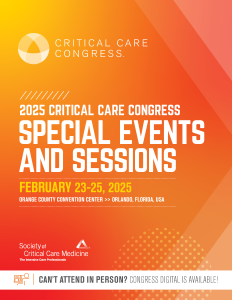Pharmacology
Research Snapshot Theater: Pharmacology/Cardiovascular, Adult
(995) A Rare Case of Bevacizumab-Induced Cardiomyopathy
Sunday, February 23, 2025
9:45am - 10:45am Eastern Time
Location: Connections Central - RST 07

Bejan Kanga, MD (he/him/his)
The Cleveland Clinic, USA
- AA
Avneep Aggarwal, MD
Staff Anesthesiologist
Cleveland Clinic
Cleveland, Ohio, United States
First Author(s)
Co-Author(s)
Introduction: Bevacizumab, a humanized anti-VEGF monoclonal antibody, inhibits angiogenesis and microvascular growth. It is indicated for treating metastatic colorectal cancer in combination with fluorouracil-based chemotherapy. While cardiomyopathy and heart failure are documented side effects of many chemotherapy agents, there is limited literature on bevacizumab-induced cardiomyopathy.
Description: A 74-year-old female with metastatic rectal adenocarcinoma was admitted to the surgical ICU with altered mental status on postoperative day 2 following an uncomplicated laparoscopic ablation of hepatic lesions. Her immediate postoperative course was complicated by oliguric renal dysfunction and a markedly positive net fluid balance. On postoperative day 1, she developed severe encephalopathy with unilateral weakness and aphasia. A stroke workup, including CT, CTA, and MRI of the brain, was negative. Further evaluation for metabolic encephalopathy revealed new cardiomyopathy, evidenced by elevated BNP and troponin levels, and a global reduction of left ventricular ejection fraction (LVEF) to 25%, without regional wall motion abnormalities. This was suspected to be secondary cardiomyopathy from bevacizumab, administered two weeks prior, rather than acute coronary syndrome. Her hospital course was further complicated by acute hypoxia and severe oliguria, necessitating dialysis for fluid removal. With diuresis and avoidance of cardiotoxic agents, her mental status and renal function gradually improved. By postoperative day 10, her LVEF had recovered to 55%, and she had full renal recovery, allowing cessation of dialysis. She was at her neurologic baseline at discharge on postoperative day 24.
Discussion: Cardiomyopathy is a rare side effect of bevacizumab therapy, with limited data available. Bevacizumab, by inhibiting VEGF, can disrupt crucial cardiac functions, leading to cardiotoxicity. This likely occurs via multiple mechanisms, including vasoconstriction, renal thrombotic microangiopathy, and interference with cardiac energy metabolism. High suspicion for cardiac toxicity secondary to bevacizumab is essential when patients on this therapy experience multi-organ dysfunction and undifferentiated shock in the ICU. Prompt recognition and management are critical for a good outcome.
Description: A 74-year-old female with metastatic rectal adenocarcinoma was admitted to the surgical ICU with altered mental status on postoperative day 2 following an uncomplicated laparoscopic ablation of hepatic lesions. Her immediate postoperative course was complicated by oliguric renal dysfunction and a markedly positive net fluid balance. On postoperative day 1, she developed severe encephalopathy with unilateral weakness and aphasia. A stroke workup, including CT, CTA, and MRI of the brain, was negative. Further evaluation for metabolic encephalopathy revealed new cardiomyopathy, evidenced by elevated BNP and troponin levels, and a global reduction of left ventricular ejection fraction (LVEF) to 25%, without regional wall motion abnormalities. This was suspected to be secondary cardiomyopathy from bevacizumab, administered two weeks prior, rather than acute coronary syndrome. Her hospital course was further complicated by acute hypoxia and severe oliguria, necessitating dialysis for fluid removal. With diuresis and avoidance of cardiotoxic agents, her mental status and renal function gradually improved. By postoperative day 10, her LVEF had recovered to 55%, and she had full renal recovery, allowing cessation of dialysis. She was at her neurologic baseline at discharge on postoperative day 24.
Discussion: Cardiomyopathy is a rare side effect of bevacizumab therapy, with limited data available. Bevacizumab, by inhibiting VEGF, can disrupt crucial cardiac functions, leading to cardiotoxicity. This likely occurs via multiple mechanisms, including vasoconstriction, renal thrombotic microangiopathy, and interference with cardiac energy metabolism. High suspicion for cardiac toxicity secondary to bevacizumab is essential when patients on this therapy experience multi-organ dysfunction and undifferentiated shock in the ICU. Prompt recognition and management are critical for a good outcome.

